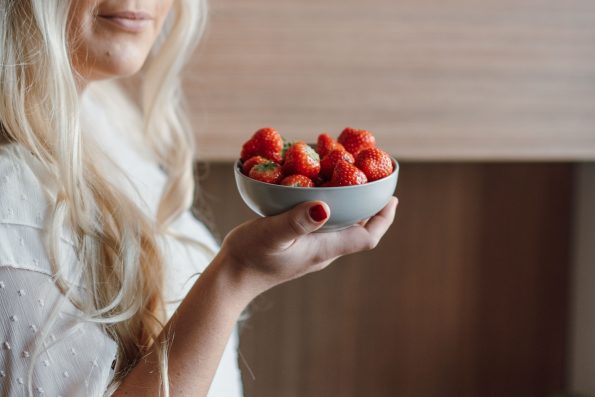Food is one of the most essential things in our lives! For most of us, it is much more than a source of energy! It is linked nearly with everything – health, pleasure, social life, etc. But has anyone told you that there is a connection between food and mood?!
Have you always wondered whether nutrition affects your mood? Stay with us to find out!
Can you name one single thing that connects all the people around the world? We bet you are thinking about food! That’s right! All people, regardless of the location, have a special relationship with food! Indeed, we are eating to have the energy necessary for performing all the tasks. But nowadays, food has other roles in our lives. When we meet in a restaurant, for example, with friends or business partners, it is not just for the sake of eating. The same stands for when we organize brunch or BBQ parties, etc.
Now, we know quite well that food affects our cardiovascular system and overall physical health. Thus, although we enjoy all the junk foods and sweets, we try to limit them as much as possible. Sometimes we might also take appetite suppressant to reduce craving such food. But what do you know about the connection between food, mood, and mental health? If the first thought that comes to your mind is that such a thing doesn’t exist, we will tell you to think again. Say, when you eat something delicious, how do you feel? And what is your feeling after you ate something you didn’t like or did agree with you? What about your feelings when you don’t eat for a period of time?
If you pay attention here, you will notice that every question has the word feeling! That signals that there is a pretty apparent link between food and mood, doesn’t it? But is there something more to it?
Well, nutritional psychology experts say that there is much more to ways how food affects mood than we possibly imagine. We found this to be fascinating indeed! Thus, we asked them to share more with us and our readers. Now, we can understand more about the relationship between food and mood and what to eat to improve the situation.
The Link Food and Mood
Have you heard d about nutritional psychology before? As the name says, it is an area of psychology that focuses on food and mood relationships and more than that. Growing research such as Nurses’ Health Study and Women’s Health Initiative found a link between food and mental health in middle-aged and older, postmenopausal women. Similarly, a study published in the International Journal of Obesity links dietary factors, obesity, and depression. The researchers are also investigating the reasons why diet and nutrition have an impact on mental health.
Of course, beyond the link between food and low mood, the impact of diet on mental health is pretty complex, and it will take some time before we fully understand it. However, while we are waiting, we have a lot of evidence suggesting that eating a healthy diet has a protective effect on our mental wellbeing as much as on physical.
Improve Your Mood with Food

Choose Carbs Wisely
Generally, whenever we are talking about carbohydrates, we see many puzzled faces. People get confused because we are advising everyone to avoid sugar, wheat, etc., and at the same, we insist that our bodies need carbs for energy. But, you see, both are true. Foods with a high Glycemic index, such as cakes, bread, sugary drinks, etc., are problematic. They cause big fluctuations in blood sugar levels. It wouldn’t be a problem per se. However, these blood glucose fluctuations lead to a lack of focus, nervousness, etc. When you see this, the link between fast food and mood swings, becomes clear doesn’t it? So what kind of carbs should I eat when I am looking for foods to improve my mood, then? You can choose from a wide range of foods that contain carbohydrates but have a low Glycemic index. These can be, for example, fruits and veggies, whole grains, etc.
Eat Foods Rich in Omega 3
In recent years, scientists are talking a lot about the importance of Omega 3 fatty acids. They are considered exceptionally beneficial for our health. As our bodies cannot produce them on their own we have to get them from the diet. The biggest natural source of these fats is oily fish such as salmon and mackerel. However, if you are vegan or vegetarian, you can find it in sea algae. A Journal of Epidemiology and Community Health recently published an interesting study. A group of researchers analyzed previous studies that involved more than 150,000 participants and examined the link between eating fish and depression. The results were astonishing because they clearly showed that people consuming fish regularly had the least risks of developing depression.
Take Probiotics
Hearing about probiotics doesn’t make you think about ways how food can enhance mood, now does it? Yeah, we admit, it didn’t that to us either! Probiotics are for gut health, what does that have with mood? Well, we came across a review published in Annals of General Psychiatry, that based on the analysis of other studies, showed that people who took probiotics had much-improved depression symptoms than those who didn’t.
Another study, published in Gastroenterology, involved people who have IBS, Irritable Bowels Syndrome. The study showed that patients taking probiotic Bifidobacterium longum experienced an improvement in IBS and depression symptoms.
The same study points to the connection between the improved symptoms of depression and changes in the area of the brain which regulates mood.
Enjoy Coffee, But in Moderation
The main ingredient of coffee, caffeine, is known for its ability to release dopamine, a chemical, significant for mood and performance. Results of various observational studies, published in Molecular Nutrition and Food Research, found that caffeine has a potent effect on alleviating the symptoms of depression. However, people have different reactions to caffeine. Therefore if it makes you anxious or jittery, replace coffee with less caffeinated drinks, such as black or green tea. Another popular beverage with a lower amount of caffeine is masala chai.
Conclusion
Although it is still research, we already have enough evidence that supports the idea that there is a link between food and mood! We think that junk ad processed food make us feel good, and often we refer to them as comfort foods. However, when you think about how you feel several hours after, it is clear that there is something off in regards to unhealthy food and mood. Keep in mind that small dietary changes have long-term positive effects on your mental and physical wellbeing. What are your thoughts about these discoveries? Have you noticed that your mood changes sometimes depending on the food you eat?
In a great mood now, discover fun Events Near Me.
About the Author
Thomas Nemel is a passionate writer and a blogger and season, fast-food junkie. It was always simpler, of course, to grab a burger, pizza, or a taco along the way than to think about food. Then he heard about nutritional psychiatry and got super curious. He completely changed his habits and now is writing about this topic.




